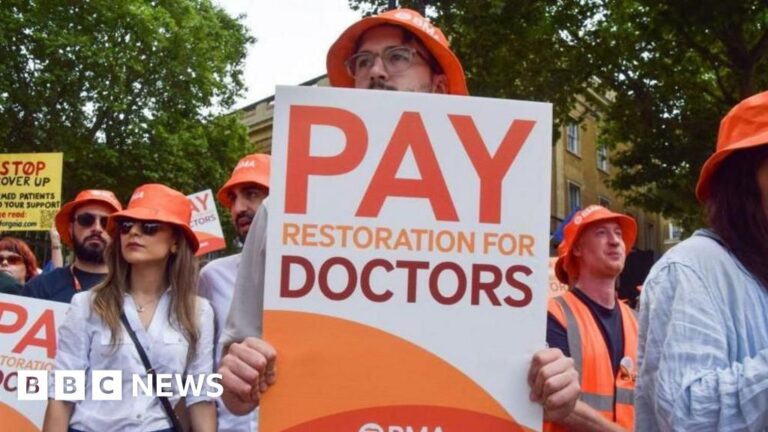Negotiations Resume Between British Medical Association and Health Secretary
The British Medical Association (BMA) and Health Secretary Wes Streeting have decided to recommence discussions following the conclusion of a recent strike by resident doctors in England. This move marks a significant step in addressing ongoing concerns surrounding doctors’ working conditions and pay.
Recent Strike Overview
A five-day strike by resident doctors wrapped up on Wednesday morning after escalating tensions led to a breakdown in negotiations last week. The BMA’s decision to initiate the strike aimed to highlight the pressing issues faced by medical professionals within the NHS.
Health Secretary’s Response
In the aftermath of the strike, Secretary Streeting extended an invitation to the BMA to reconvene talks early next week. This offer came after the union expressed a strong desire to return to the negotiation table. While Streeting emphasized that he would not negotiate on pay, he intends to focus discussions on critical working conditions, career progression, exam fees, and rota management.
Impact of the Recent Strike
Streeting cautioned that the latest strike has diminished goodwill between the government and the BMA. In a letter to the union, he labeled the strike as “deeply disappointing” and “entirely unnecessary,” suggesting that ongoing negotiations could have led to meaningful improvements for doctors.
Historical Context of Strikes
This recent walkout was the 12th strike conducted since spring 2023 and notably the first under the current Labour government. Following the election, Streeting previously reached a temporary agreement with resident doctors, which included a two-year pay increase of 22% and an additional average rise of 5.4% this year. However, the BMA has since argued that these increments are insufficient, noting that pay for doctors remains significantly lower than it was in 2008.
Looking Ahead: A Call for Constructive Talks
Despite setbacks, Streeting expressed his willingness to engage in negotiations, declaring that his door remains open for meaningful discussions. BMA co-chairs Dr. Melissa Ryan and Dr. Ross Nieuwoudt expressed their eagerness to return to the negotiation table, hoping for a more substantial offer from the Health Secretary that addresses their concerns.
Current Status of Health Services
With the latest strike concluded, the extent of disruption to health services remains unclear. The NHS has made efforts to maintain a steady flow of non-urgent procedures, such as knee and hip operations. Some hospitals have reported managing over 80% of their usual activities, an improvement compared to earlier when only 50% was feasible.
Resident Doctors: A Vital Workforce
Resident doctors make up nearly half of the medical personnel in the NHS, encompassing a range of experience levels from newly graduated doctors to those with nearly a decade of practice. Their concerns regarding working conditions and pay are vital, as they directly impact the quality of patient care and the overall functioning of the healthcare system.
In summary, as the BMA and Health Secretary prepare to re-engage, the focus will likely be on enhancing working conditions for resident doctors and finding a way forward that supports both healthcare professionals and the patients they serve.
